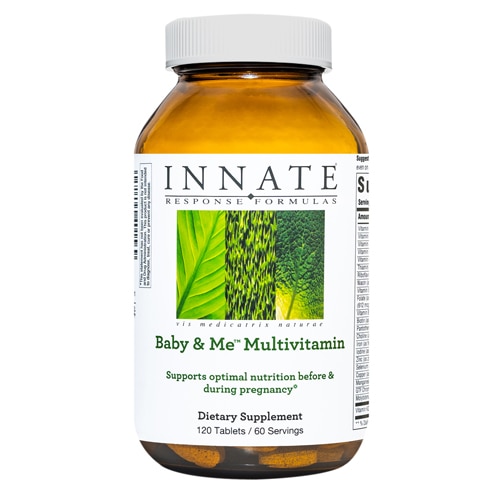You’re pregnant! Or you’re considering becoming pregnant. Either way, making the right decisions about the food you eat and the supplements you take now has a whole new level of significance. You want to choose the absolute best multivitamin for your own health and the health of your growing baby. Most women are familiar with the importance of folate and iron to support the healthy development of their growing baby, but what else should you be looking for?
In addition to folate and iron, here’s a checklist of three additional essential nutrients to consider during pregnancy:
- Iodine. Up until recently, iodine deficiency was thought to be a thing of the past. The CDC’s 2nd National Report on Biochemical Indicators of Diet and Nutrition, published in 2012, noted that women 20 to 39 years old bordered on having iodine insufficiency.[1] Iodine is important for healthy brain development and is a crucial building block of thyroid hormones. The American Thyroid Association recommends women take 150 mcg of iodine daily during preconception, pregnancy, and lactation [2], yet this amount is not always found in prenatal vitamins.
- Choline. Choline is a nutrient that is similar to B vitamins. It’s not as widely known, yet it’s very important for supporting the healthy development of the baby and is needed for optimal health of both the nervous and endocrine systems. Recent population studies have shown that common diets may be low or deficient in choline. One of the best dietary sources of choline? Egg yolks! Egg white omelettes might not be such a good idea after all.
- Vitamin D3. Because Vitamin D deficiency is so widespread, it’s ideal to have your blood levels checked prior to conception, if possible. Many doctors are now routinely ordering Vitamin D along with other standard labs. Optimal levels of vitamin D support bone health in both mom and baby. Vitamin D also supports immune health. It can be challenging to get adequate levels of vitamin D from diet and sun exposure, so supplemental amounts in your prenatal can help cover that gap.
As always, consult with your healthcare practitioner to find the prenatal supplement that best fits your individual needs.
[1] Pfeiffer CM, et al. The CDC’s Second National Report on Biochemical Indicators of Diet and Nutrition in the U.S. Population is a valuable tool for researchers and policy makers. J Nutr. 2013 Jun;143(6):938S-47S.
[2] https://www.thyroid.org/
†These statements have not been evaluated by the Food and Drug Administration. These products are not intended to diagnose, treat, cure or prevent any disease.
 Article contributed by Erin Stokes, N.D., Medical Director at Innate Response. Dr. Stokes received her naturopathic doctor degree from Bastyr University in 2001. Shortly afterwards she began to pursue her passion for educating others by teaching Western Pathology and Psychology of Healing at Southwest Acupuncture College in Boulder, Colo. She combines her experience as a naturopathic doctor with an extensive background in the natural retail industry, most recently providing naturopathic consultations at an integrative pharmacy for over six years. Her personal mission is to empower people with the inspiration and tools to change their lives, and she is a frequent radio show and podcast guest. Dr. Stokes is a registered Naturopathic Doctor in Colorado, and lives with her family in Boulder, Colo.
Article contributed by Erin Stokes, N.D., Medical Director at Innate Response. Dr. Stokes received her naturopathic doctor degree from Bastyr University in 2001. Shortly afterwards she began to pursue her passion for educating others by teaching Western Pathology and Psychology of Healing at Southwest Acupuncture College in Boulder, Colo. She combines her experience as a naturopathic doctor with an extensive background in the natural retail industry, most recently providing naturopathic consultations at an integrative pharmacy for over six years. Her personal mission is to empower people with the inspiration and tools to change their lives, and she is a frequent radio show and podcast guest. Dr. Stokes is a registered Naturopathic Doctor in Colorado, and lives with her family in Boulder, Colo.




